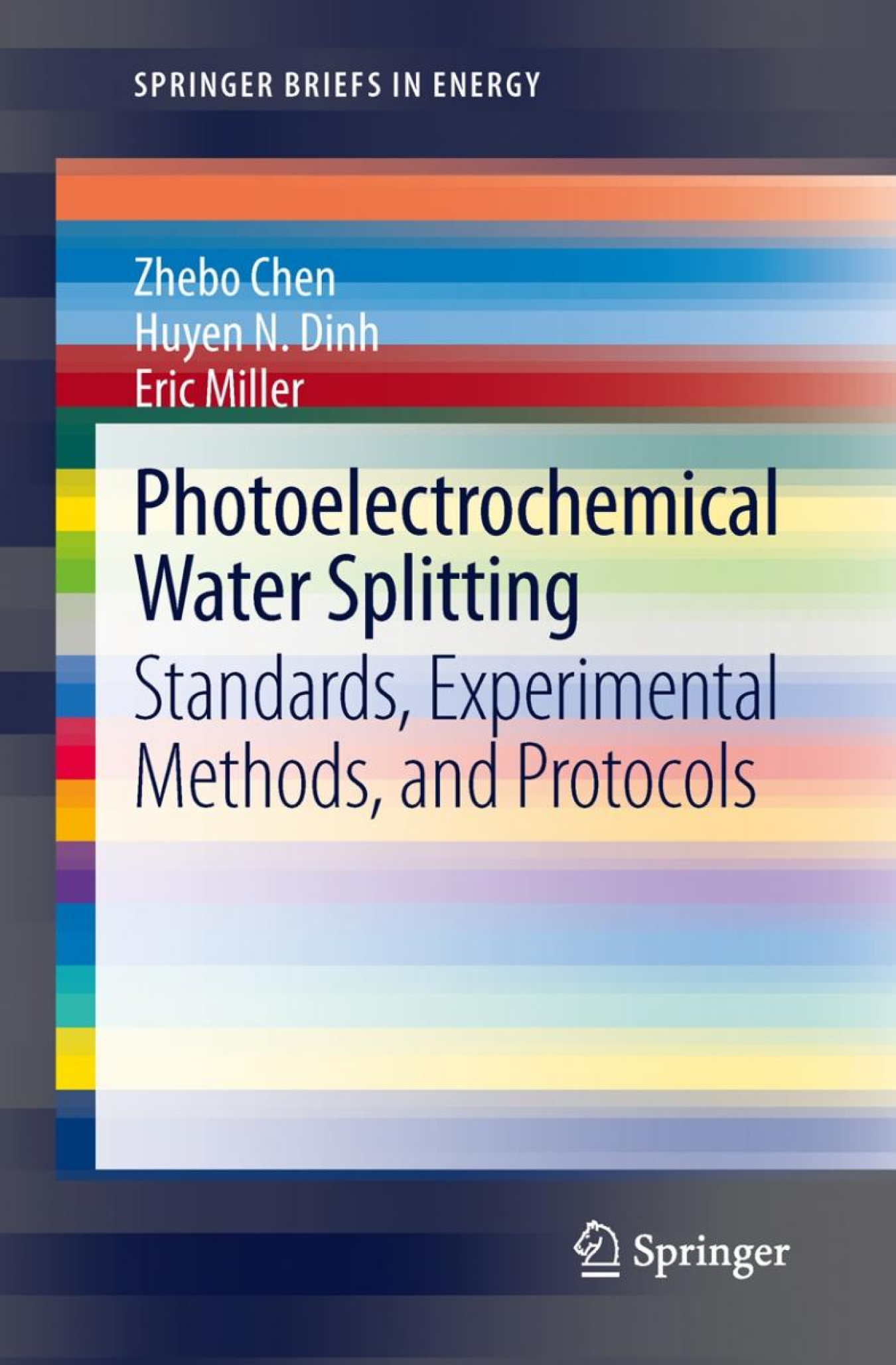A 2013 book on photoelectrochemical (PEC) water splitting developed by the U.S. Department of Energy's PEC hydrogen production working group was one of the top 25% most downloaded eBooks in the SpringerLink eBook Collection in 2016.
HydroGEN Advanced Water Splitting Materials Consortium
October 11, 2017
A 2013 book on photoelectrochemical (PEC) water splitting developed by the U.S. Department of Energy's (DOE's) PEC hydrogen production working group was one of the top 25% most downloaded eBooks in the SpringerLink eBook Collection in 2016. As of today, there have been more than 28,000 chapter downloads since the book's online publication in August 2013.
Part of the SpringerBriefs in Energy series, Photoelectrochemical Water Splitting: Standards, Experimental Methods, and Protocols is the first major compendium of specific methods and tools for characterizing and evaluating materials and devices for PEC water splitting. HydroGEN steering committee members Huyen Dinh of the National Renewable Energy Laboratory (NREL) and Eric Miller of the DOE Fuel Cell Technologies Office, along with Zhebo Chen of Stanford University, compiled and edited the book. HydroGEN capability experts Todd Deutsch and John Turner from NREL served as contributing authors along with a number of additional distinguished contributors, including Thomas Jaramillo of Stanford University, Clemens Heske from the University of Nevada at Las Vegas, and Nicolas Gaillard from the University of Hawaii at Manoa, among others.
The book details many of the experimental techniques fundamental to PEC materials development and characterization. Some important topics in the book include 1) proper metrics for describing material performance, 2) how to assemble testing cells and prepare materials for assessing their properties, and 3) how to perform experimental measurements to achieve reliable results and enhance scientific understanding.
The eBook can be downloaded from the SpringerLink website and is also available through the Amazon Kindle Shop, Apple iTunes, and Google play.

